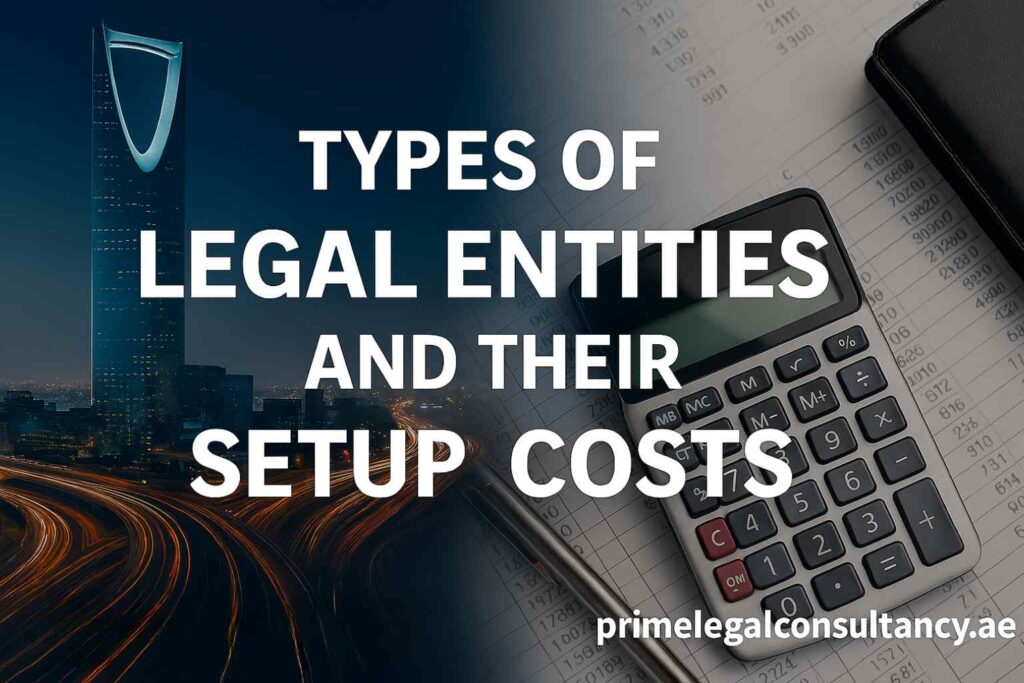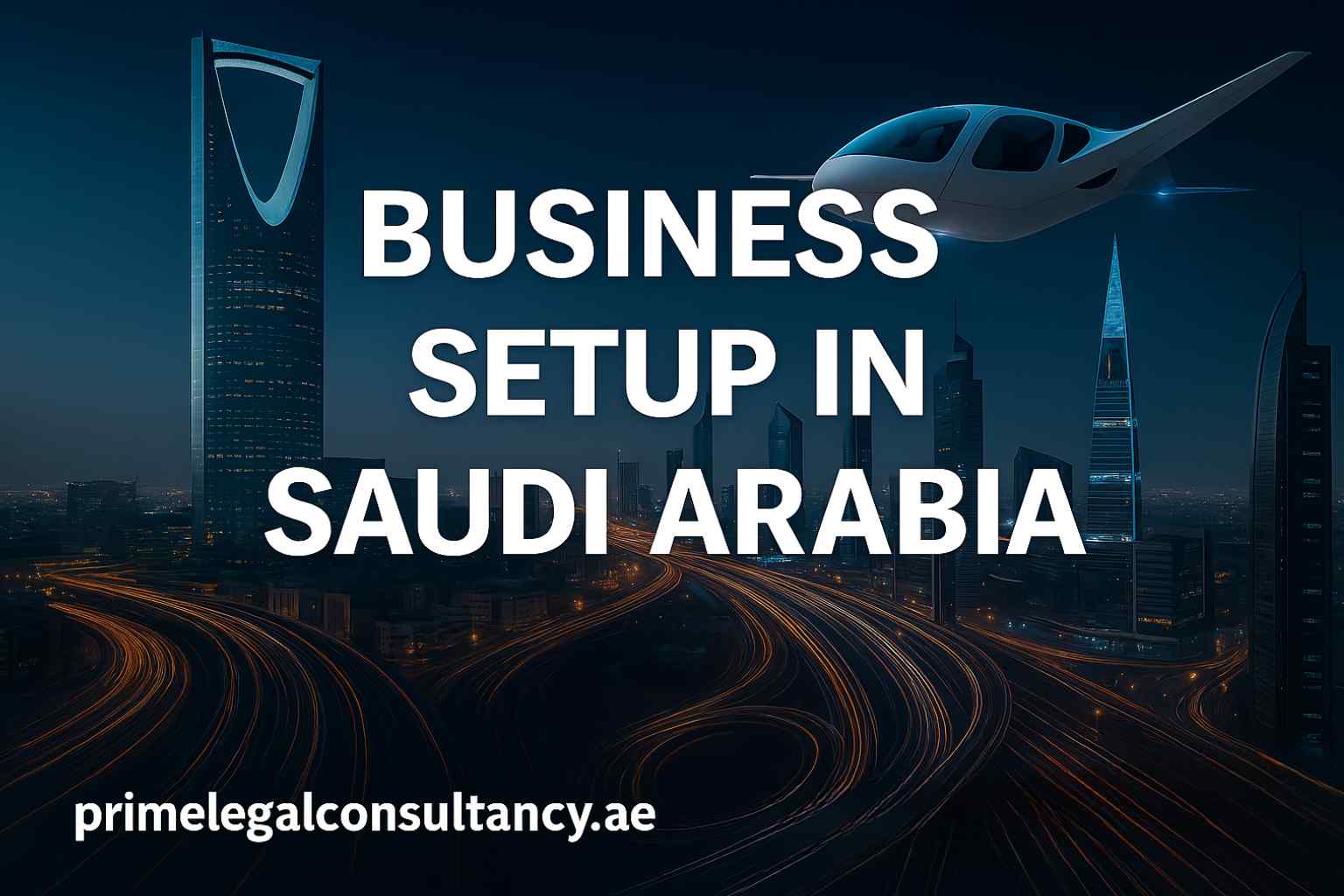Table of Contents
ToggleIntroduction
Business Setup in Saudi Arabia presents immense potential for local and foreign investors alike, especially within a flourishing economy driven by bold reforms. With the country’s ambitious Vision 2030 initiative accelerating diversification, the business environment has never been more favorable. Entrepreneurs looking to enter the Saudi market are met with growing opportunities, but understanding the complete process and associated costs is essential for a successful launch.
Saudi Arabia’s commitment to fostering innovation and attracting global investment has significantly improved its ease of doing business. From streamlined regulations to digital licensing platforms, the journey toward business setup in Saudi Arabia is now more accessible than ever. Knowing the essential steps and realistic financial commitments helps avoid missteps and sets the foundation for long-term growth.

Why Saudi Arabia is a Growing Investment Hub
With its strategic location, youthful population, and expanding non-oil sectors, Saudi Arabia offers a fertile landscape for new ventures. Key industries like technology, tourism, entertainment, healthcare, and manufacturing are actively supported by government initiatives.
Moreover, the country offers full foreign ownership in most sectors, a tax-friendly environment, and access to one of the largest consumer markets in the region. These incentives combined with massive infrastructure developments make Saudi Arabia an attractive destination for entrepreneurs worldwide.
Major Factors Influencing Business Setup Costs in Saudi Arabia
Understanding the different variables that influence the cost of business formation in Saudi Arabia is crucial. Key elements include:
- Type of Business Entity: Whether you choose a Limited Liability Company (LLC), Joint Stock Company, or a Branch Office, each comes with distinct legal and financial requirements.
- Sector of Operation: Regulated industries may require special approvals or licenses, influencing the overall cost.
Costs also depend on whether you’re setting up in a free economic zone or within the mainland.
License Registration and Government Fees
Registering your business involves several official steps, each with associated costs. These include reserving a trade name, obtaining a commercial registration, and securing required licenses. Fees typically range between SAR 2,000 and SAR 5,000 depending on business activity.
Additionally, businesses must register with the Ministry of Commerce and Investment (MoCI), General Authority of Zakat and Tax (GAZT), and obtain municipality approvals where required. Legal documentation such as articles of association and notarizations add to the initial expenses.
Office Space and Operational Expenses
Securing a commercial address is mandatory for most businesses. Office rental costs depend heavily on location, size, and city. In Riyadh or Jeddah, annual rents for modest office spaces can range between SAR 20,000 and SAR 70,000.
Additional operational costs like utility setup, furnishing, and insurance should also be considered. Opting for shared workspaces or innovation hubs can help reduce initial outlays for startups.

Types of Legal Entities and Their Setup Costs
| Entity Type | Foreign Ownership | Estimated Setup Cost (SAR) | Annual Renewal Fee (SAR) |
|---|---|---|---|
| LLC | Up to 100% | 25,000 – 60,000 | 10,000 – 20,000 |
| Joint Stock Company | Requires capital | 100,000+ | Varies |
| Branch of Foreign Co. | 100% | 30,000 – 50,000 | 12,000 – 18,000 |
| Sole Proprietorship | Limited | 10,000 – 25,000 | 5,000 – 10,000 |
These figures vary depending on industry, location, and regulatory requirements.
Visa and Employee Costs
Hiring local or foreign employees comes with additional responsibilities. Businesses need to register with the Ministry of Human Resources and Social Development (HRSD) and obtain work visas for foreign staff.
Each employee visa may cost SAR 2,000 to SAR 5,000 depending on nationality and sponsorship type. Moreover, businesses must contribute to social insurance and employee health coverage, which are ongoing costs.
Taxation and Financial Obligations
Although Saudi Arabia has no personal income tax, businesses must comply with corporate tax or Zakat obligations. Foreign-owned businesses are subject to 20% corporate income tax, while Saudi-owned entities pay Zakat.
VAT registration is mandatory if annual turnover exceeds SAR 375,000. VAT returns and compliance also bring recurring costs, including hiring accounting services or financial software solutions.
Industries with Variable Setup Costs
Not every sector shares the same entry requirements. Some industries involve higher licensing fees or capital investment requirements.
For example:
- Healthcare and Pharma: Require multiple certifications and inspections.
- Construction and Real Estate: Demand additional permits and insurances.
Understanding industry-specific needs helps businesses allocate resources more effectively and avoid delays in approvals.

Support Services and Business Accelerators
Saudi Arabia is home to various government-backed platforms and private incubators designed to help startups succeed. Services include mentorship, subsidized office spaces, and technical training.
Utilizing these resources reduces setup expenses and speeds up market entry. Organizations like Monsha’at, the Small and Medium Enterprises General Authority, offer tailored support programs for new entrepreneurs.
Benefits of Professional Business Setup Consultants
Partnering with experienced consultants can streamline your setup journey. From legal registration to office search and staffing, they manage the administrative load and ensure compliance.
Their knowledge of local laws, government procedures, and cost-effective options can ultimately save money, time, and potential regulatory issues. Many also offer bundled service packages that lower overall startup expenditure.
Also Read: Top Business Idea Corporate Services 2025
Conclusion
Understanding the real cost of business setup in Saudi Arabia allows entrepreneurs to plan better, budget smarter, and operate more confidently. With its investor-friendly reforms, strategic location, and large domestic market, the Kingdom presents abundant opportunities for those ready to take the leap. By carefully considering legal structures, licensing requirements, and industry-specific expenses, your business can launch smoothly and scale sustainably in this thriving Middle Eastern hub.
FAQ About Business Setup in Saudi Arabia
Q1: How much does it cost to set up a company in Saudi Arabia?
Ans: The cost can range from SAR 10,000 to SAR 50,000+, depending on the business type, licenses, and legal structure. Additional fees apply for visas and office space.
Q2: How do I start my own business in Saudi Arabia?
Ans: You must choose a business type, register with the Ministry of Commerce, get a commercial license, and fulfill local requirements like office space and ZATCA registration.
Q3: Which is the best business to start in Saudi Arabia?
Ans: Sectors like IT services, e-commerce, tourism, logistics, and renewable energy are highly profitable and encouraged under Vision 2030.
Q4: Can a foreigner own a business in Saudi Arabia?
Ans: Yes, but you must obtain a foreign investment license from SAGIA (now MISA) and meet capital and regulatory requirements.
Q5: What are the requirements to start a business in Saudi Arabia?
Ans: You’ll need a commercial registration, office lease, Saudi address, valid identification, and licenses based on your industry type.
Q6: How long does it take to set up a company in Saudi Arabia?
Ans: It typically takes 1 to 4 weeks, depending on the business type, documentation, and approvals from government departments.
Q7: Can a foreigner set up a company in Saudi Arabia?
Ans: Yes, foreigners can open companies after securing a MISA license and complying with Saudi ownership and capital regulations.
Q8: What is the business structure of Saudi Arabia?
Ans: Common structures include Limited Liability Company (LLC), Joint Stock Company, Branch of a Foreign Company, and Sole Proprietorship.
